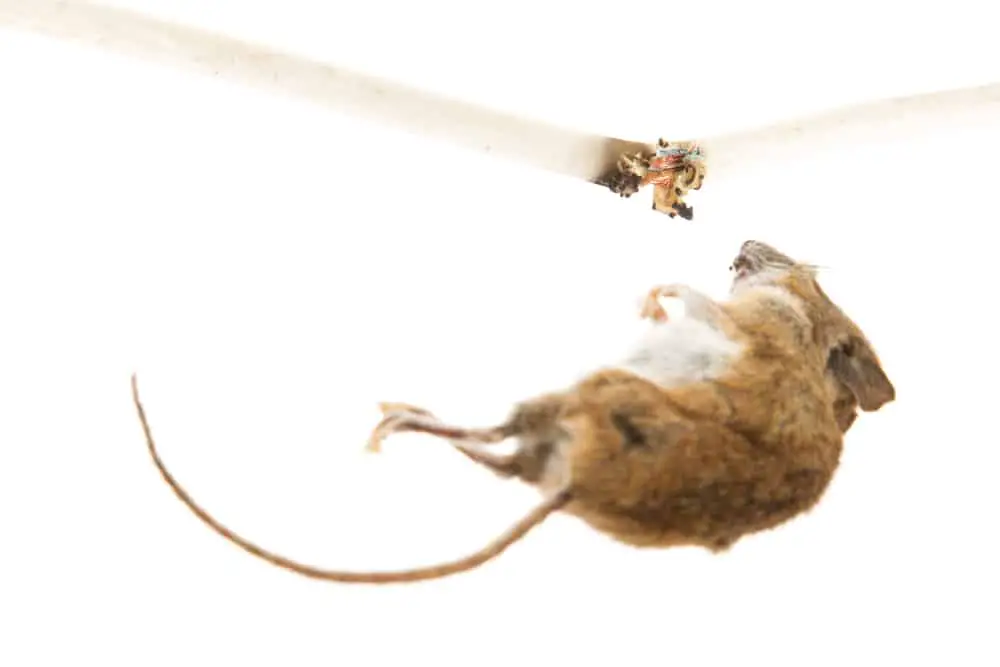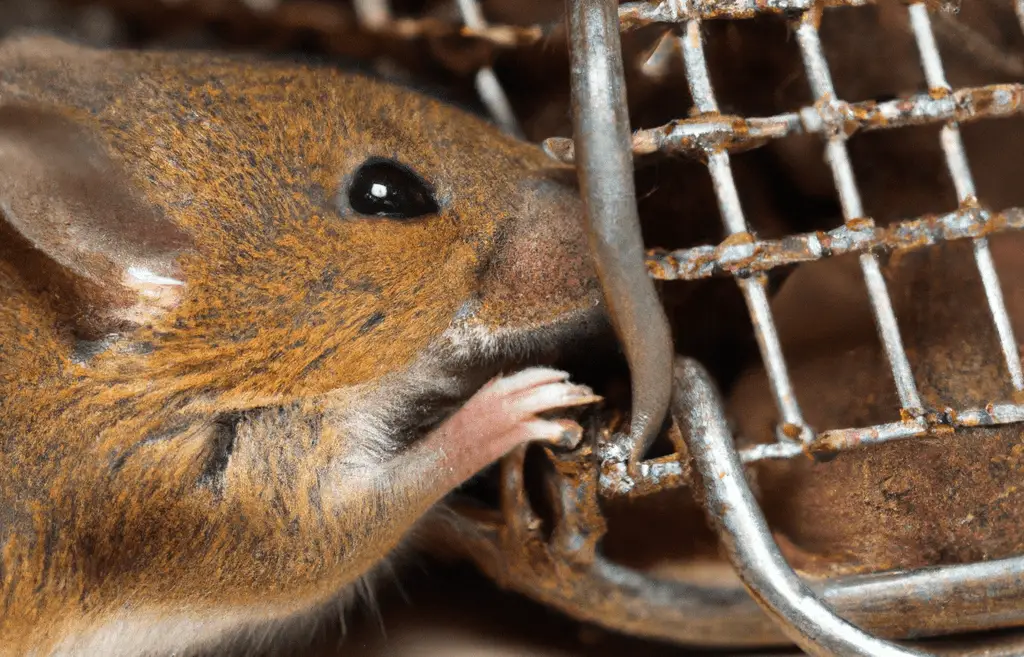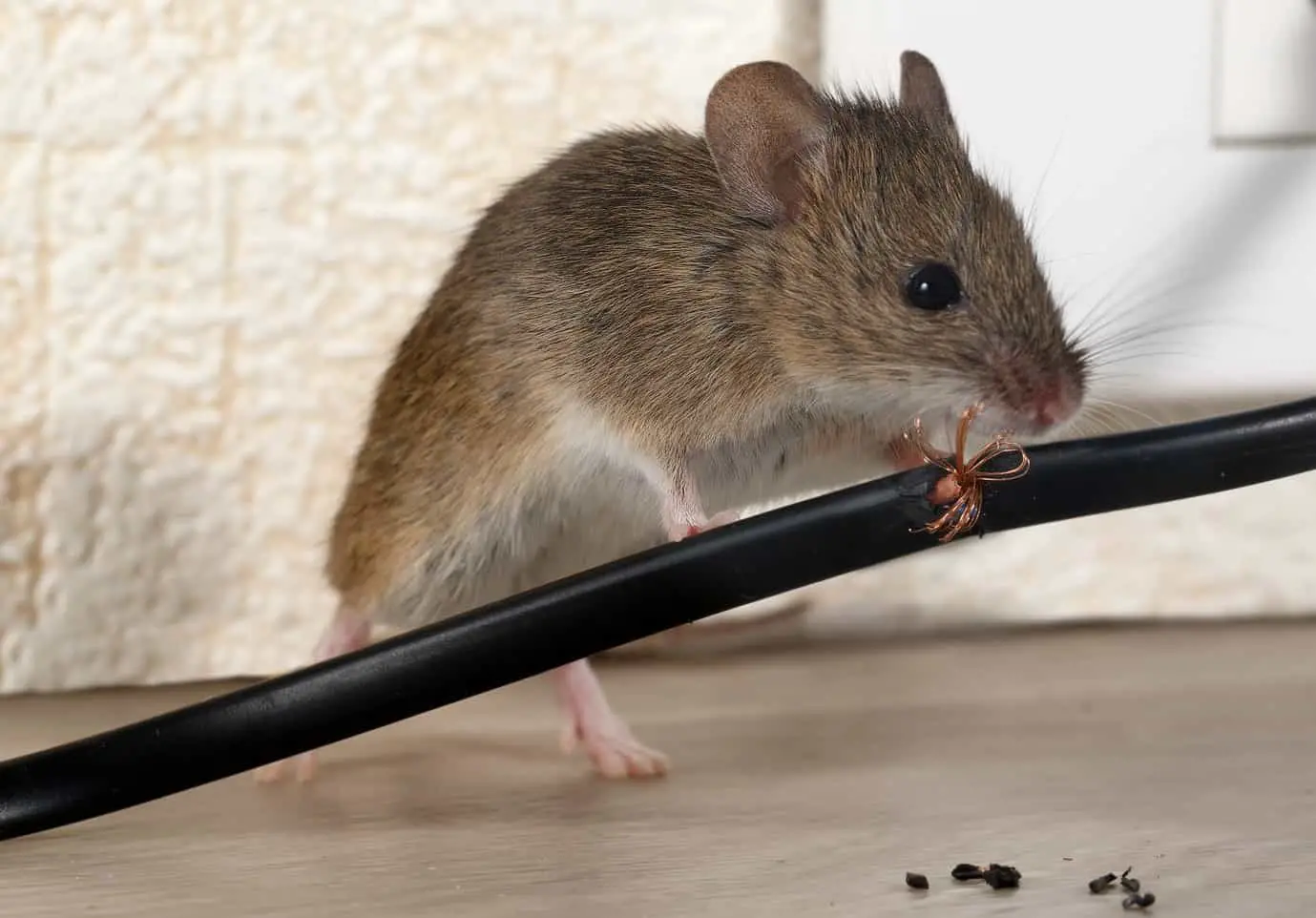Rodent infestations are common in homes and offices and lead to significant property damage worldwide. House mice have the habit of nesting in walls and using any soft material they can find for bedding during the cold winter months. Rodent droppings and mouse excrement can cause horrible odors in the walls and additional damage to the buildings while also being a health hazard to occupants of the buildings.
Are of these issues are relatively minor compared to the real potential dangers of a mouse infestation; house fires. Electrical wires in our walls often lay in the path of field mice, deer mice, rat infestations, or any other rodent occupation of our homes and businesses. Will rodents use their sharp teeth to bite hot wires and lead to residential fires? The answer probably won’t surprise you!
Are Rodents Electrical Hazards in Homes?
Any rodent that can squeeze into your walls or nest in your electrical equipment can cause damage to electrical wires in your home. Electrical wiring damaged by mice and other rodents accounts for numerous fires every year and countless civilian deaths. There are few things as dangerous as a home overrun by rodents.
Damage to electric wires is only one of the negative aspects of mice in your home. They also bring flammable materials into electrical junctions and increase the chance of a short fire. The material for mice to nest in is usually dry and paper-like materials that are all highly combustible. Mice can move plastic insulation and cause damage to insulation around the walls and lead to pockets of air where fire blocks are absent.
Why Do Rodents Chew Through Wires?
There are several reasons why a family of mice might move into your home and start chomping on your electric wires. Regardless of the specific reason, these kinds of mice will cause costly damage and lead to a full-blown house fire. Figuring out why mouse chewing is common and what pest control services to use to stop them.
| Reason | Effect | How to Prevent |
| Grind Teeth Down | Frayed wire, electrical issues | Keep mice out of electrical systems |
| Soy-Based Wiring | Attracts hungry rodents | Coat piece of wire with plastic or metal wire sheath |
| Nesting Materials | Electrical damage and short-circuit fires | Keep electrical panels and boxes sealed from rodent intrusion |
Grind Teeth Down
Field mice and most other rodents have incisor teeth that never stop growing. If they aren’t constantly gnawing and chewing to keep them trimmed, it becomes hard for them to eat and may lead to starvation. Mice like grabbing onto wires because they are easy to hold and chew against, giving them the best control when filing down overgrown chompers.
As mice grind their teeth, bad wiring will disconnect and short out, leading to residential fires and other mortal safety issues. The copper wiring in the middle of the sheath is hard enough that rodents can sharpen their teeth and strong enough to withstand most mouse bites.
Soy-Based Wiring
Most insulation of wiring is soy-based and has the potential to attract rodents. Soybeans are a common food of mice around the world, and so when they find it inside our walls, they are excited. Attic wiring can quickly be eaten by mice as the hidden damage can go unnoticed until there are larger-scale issues throughout the home.
Avoid maintenance issues by wrapping soy-based wires in thick plastic or metal sheaths. These sheaths are insulated against shorting and offer more durable protection against rodent bites. It can be expensive to rewire an entire home so try to prevent rodents from entering your home first.
Nesting Materials
Winter is cold and small rodents that have never been pests in our home might appear for one season. In the process of building nests, they can cause obvious damage and work unseen behind the walls to more insidious ends. When building nests to stay warm and breed, mice will ransack every material that fits the requirements anywhere in your home.
Annoying rodents will tear up insulation and wires to use as nest materials. As they work into corners and junction boxes, they will chew and dislodge wires to make more room. Any wire short could lead to ignition and possibly fatal fires when packed with flammable materials inside our walls.
How to Prevent Mouse-Related Fires

The easiest way to reduce the percentage of house fires caused by rodents is to exclude them and all other nasty pests from your home. This could be as easy as sealing a few holes or as complex as contacting a pest control professional. Either way, you will want to keep your electrical systems far from where rodents roam.
If you currently have no pests in your home, it would be a good time to check your perimeter and seal any gaps or damaged dryer vents. Keeping mice out before winter can help you have fewer pest issues the rest of the year. If you already have mice inside, you will need to trap and eliminate those while rodent-proofing the exterior as well.
Removing Mice Inside
Mice that are already inside your home need to be removed carefully, or you could end up with dead mice in your walls and bad odors. You will want to trap, repel, or exclude all mice before sealing up the holes. It is best to do this in the spring or summer when the outside temperatures are inviting, and mice spend most of their time outdoors foraging for food.
Using bait traps or live traps, catch and dispose of or relocate all the current mice in your home. Smoke, sound, and lights can all be used to try and drive mice out of hard-to-reach places like drain pipes and crawl spaces. Once you have successfully evicted all the unwanted rodents, you will need to seal the outside securely.
Preventing Mice from Outside

Outside maintenance should be an all-year project to keep all pests out of your home. Once inside, pests can lead to tons of problems and may be hard to remove or even locate. Use the time when the weather is nice to monitor and improve any property issues that you notice to avoid having to fix issues in bad weather.
Trees and shrubs should be cut back at least 6 inches from windows, and roof eaves, to make it harder for rodents to move from the tree to your house. Any broken or cracked vents or windows need to be sealed, and wire mesh can be used to exclude pests in small gaps. Any remaining holes can be sealed with copper mesh and expanding foam. Keep mice and rodents out of your home and reduce the chances of electrical fires significantly with these basic steps.


